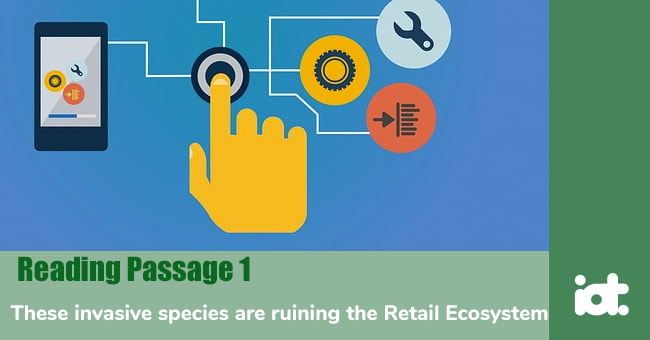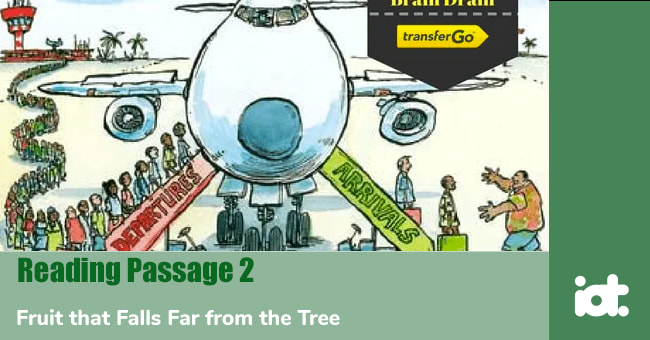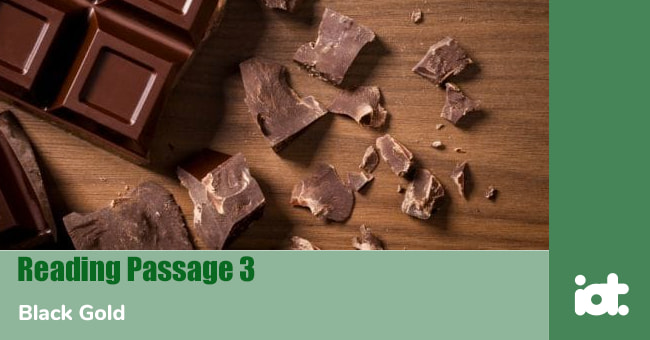
IELTS Practice Test Volume 8
- Đăng ngày: 04 Dec 2019
- Tests taken: 452,090
Đáp án
Part 1: Question 1 - 13
- 1 F
- 2 A
- 3 C
- 4 D
- 5 cattle feed
- 6 epoch
- 7 Corporate lawyers/Lawyers
- 8 weakly regulated markets
- 9 NOT GIVEN
- 10 TRUE
- 11 FALSE
- 12 NOT GIVEN
- 13 TRUE
- 1 F
- 2 A
- 3 C
- 4 D
- 5 cattle feed
- 6 epoch
- 7 Corporate lawyers/Lawyers
- 8 weakly regulated markets
- 9 NOT GIVEN
- 10 TRUE
- 11 FALSE
- 12 NOT GIVEN
- 13 TRUE
Part 2: Question 14 - 26
- 14 C
- 15 H
- 16 G
- 17 D
- 18 22 A,B,D,E,H
- 23 A
- 24 B
- 25 B
- 26 A
- 14 C
- 15 H
- 16 G
- 17 D
- 18 22 A,B,D,E,H
- 23 A
- 24 B
- 25 B
- 26 A
Part 3: Question 27 - 40
- 27 B
- 28 C
- 29 C
- 30 B
- 31 shortfall/deficit
- 32 wine and coffee
- 33 blood clots
- 34 outright denial
- 35 gritty tasting
- 36 FALSE
- 37 TRUE
- 38 TRUE
- 39 NOT GIVEN
- 40 NOT GIVEN
- 27 B
- 28 C
- 29 C
- 30 B
- 31 shortfall/deficit
- 32 wine and coffee
- 33 blood clots
- 34 outright denial
- 35 gritty tasting
- 36 FALSE
- 37 TRUE
- 38 TRUE
- 39 NOT GIVEN
- 40 NOT GIVEN
Leaderboard:
| # | Thành viên | Điểm | Thời gian | |
|---|---|---|---|---|
| Guttula Satya santosh |  | 9.0 | 15:19 | |
| Nguyen Thu Trang |  | 9.0 | 15:19 | |
| vuong an |  | 9.0 | 15:43 | |
| 4 | Arkaprava Dutta |  | 9.0 | 15:44 |
| 5 | Thạch Vũ Lê Quân |  | 9.0 | 15:53 |
| 6 | Smritikana Samanta |  | 9.0 | 16:55 |
| 7 | maria peltz |  | 9.0 | 17:31 |
| 8 | huyen phan thanh |  | 9.0 | 17:34 |
| 9 | Darina Nurlankyzy |  | 9.0 | 18:04 |
| 10 | Hà Diệp Anh |  | 9.0 | 18:09 |
Giải thích chi tiết
Questions 1-4
The text has 6 paragraphs (A - F).
Which paragraph contains each of the following pieces of information?
1 The suggestion that the government should legislate to control invasive species of a corporate nature
2 Examples of the problems with the spread of specific invasive species in nature
3 A description of how invasive species in nature are different from other ones
4 Examples of companies that can be considered invasive species
- 1 Answer: F
- 2 Answer: A
- 3 Answer: C
- 4 Answer: D
Questions 5-8
Complete the following sentences using NO MORE THAN THREE WORDS from the text for each gap.
Japanese knotweed was used for decoration and as 5
“Homogocene” is the word used by natural scientists to describe the 6 we are living in.
7 , plenty of money, and cost-cutting increase the strength of big supermarkets.
The article suggests that 8 allow economic invasive species to do what they want and eventually lead to monopolies.
- 5 Answer: cattle feed
- 6 Answer: epoch
- 7 Answer: Corporate lawyers/Lawyers
- 8 Answer: weakly regulated markets
Questions 9-13
Do the following statements agree with the information given in Reading Passage 1?
In boxes 9 - 13 on your answer sheet, write:
| TRUE | if the statement agrees with the information |
| FALSE | if the statement contradicts the information |
| NOT GIVEN | If there is no information on this |
9 The Nile perch was introduced to Lake Victoria as a source of food for local people.
10 Planning regulations have been ineffective against big supermarkets.
11 Supermarkets in Britain sell a limited range of products.
12 Chain stores only sell low-quality goods.
13 The writer is against the domination of big supermarkets.
- 9 Answer: NOT GIVEN
- 10 Answer: TRUE
- 11 Answer: FALSE
- 12 Answer: NOT GIVEN
- 13 Answer: TRUE
Reading Passage 1
You should spend about 20 minutes on Questions 1 -13, which are based on Reading Passage 1 below.

These Invasive Species are Ruining the Retail Ecosystem
A. Invasive species often triumph as a result of good intentions gone wrong. Take Japanese knotweed (Fallopia japonica), introduced to Britain by enthusiastic Victorian gardeners who thought it an ornamental delight that doubled as cattle feed. But from just a scrap of root no bigger than a pea it could grow through tarmac, pavements, and brick walls. A century later, its spread is considered such a threat that planting or dumping knotweed is a crime, knotweed is sohated because it suffocates other plants, replacing them with an unproductive, leafy monotony. Then there is the Nile perch ( Lates niloticus), branded one of the world's worst invaders by conservationists. It is a freshwater fish that can grow to huge proportions. Again, with good intentions, it was introduced in 1954 to Lake Victoria, straddling Tanzania. Kenya, and Uganda. Since then, it has helped push over 200 well-established local fish species to extinction. Like the Nile perch, the cane toad (Bufo marinus) eats almost anything it gets its mouth around. Introduced for pest control, it turned out to be noisy, fast spreading, and a greater pest itself.
B. As it is in nature, so it is in the economy. Big superstores and chain retailers were allowed to spread by planners, town councils, and governments in awe of big business. But then it started to go wrong. The chains became the economic equivalent of invasive species: hungry, indiscriminate, often antisocial and destructive. When no one was paying much attention, the superstores and cloned shops grew to dominate and suffocate the economic ecosystem. They passed through planning regulations as easily as knotweed pushes through tarmac, devoured smaller and independent retailers with as much reflection as the Nile perch cleansing Lake Victoria of competition. They were often introduced to provide a specific service but outgrew their habitats until their cash till song could be heard on every street corner, forecourt, round about, and out of town shopping centre. Neither in balance, nor even a boom bust cycle with other similar, local species of shop; they began permanently to displace them.
C. Natural scientists use a whole new term to describe the current epoch of comprehensive. global human interference in ecosystems. Our time, they say, should be called the "Homogocene" to describe the way that distinctiveness and difference are being eroded. A combination of the creep of invasive species and habitats destroyed by development is driving a mass extinction. The World Conservation Union warns that such invasions are leading to the irretrievable loss of native biodiversity. Typical characteristics of an invasive species include the absence of predators, hardiness, and a generalist diet. Whatever the reason for their arrival and proliferation, invasive species tend to cause a disruption of the ecosystem that is catastrophic for native species.
D. The big, centralised logistical operations of the supermarkets are likewise driving the homogenisation of business, shopping, eating, farming, food, the landscape, the environment, and our daily lives. In the process, Britain is being sucked into a vortex of US-style, chain-store-led. clone retailing, both in towns and in soulless "big box" out-of-town shopping parks - what they call in the US, with its associated suburban sprawl, the "dead zone". They are spreading in the way "invasive species" spread in nature, lacking checks and balances, killing off diversity and "native" (in other words, local) species. Tesco is not the only guilty party (think of McDonald's. Starbucks, and Gap), but it is possibly the largest driving force. With around 2.000 stores in Britain, almost one third of the grocery market, and rapid international growth, city analysts believe the brand has the land and resources in place already to double its UK floor space. Can anything stop it?
E. Bear in mind those characteristics of an invasive species: the absence of predators (real commercial competition or effective regulators to hold them back); hardiness (the legions of corporate lawyers, financial leverage, and endless commercial cost cutting); and a generalist diet (supermarkets will sell virtually anything, and chain stores operate according to a low common denominator). If you want diversity in your world rather than one kind of plant in your garden, one kind of fish in your lake and only one type of venomous, croaking toad under your shed, then you have to manage for that outcome. When we garden, we hold back aggressive, opportunistic plants in order to keep space open for a celebration of variety and colour.
F. Like it or not (and it is something about which most policy makers and economists are in deep denial), weakly regulated markets give free rein to economic invasive .species and hence tend towards monopoly. This is the great modern economic irony. Advocates of free markets argue against checks and balances to counter the power of big business, but in doing so ultimately destroy the possibility of markets that could meaningfully be called free, or, rather, "open". They resist anti-monopoly regulation in the name of providing consumer choice, and in the process they ultimately destroy it. In some important ways, we are returning to an earlier phase of corporatism. Henry Ford told customers they could have any colour of car, as long as it was black. The scale and seriousness of Tesco's ambition mean that, before long, unless we recognise what is happening and have regulators up to the job, one day we will be able to shop anywhere we like, as long as it is Tesco.






